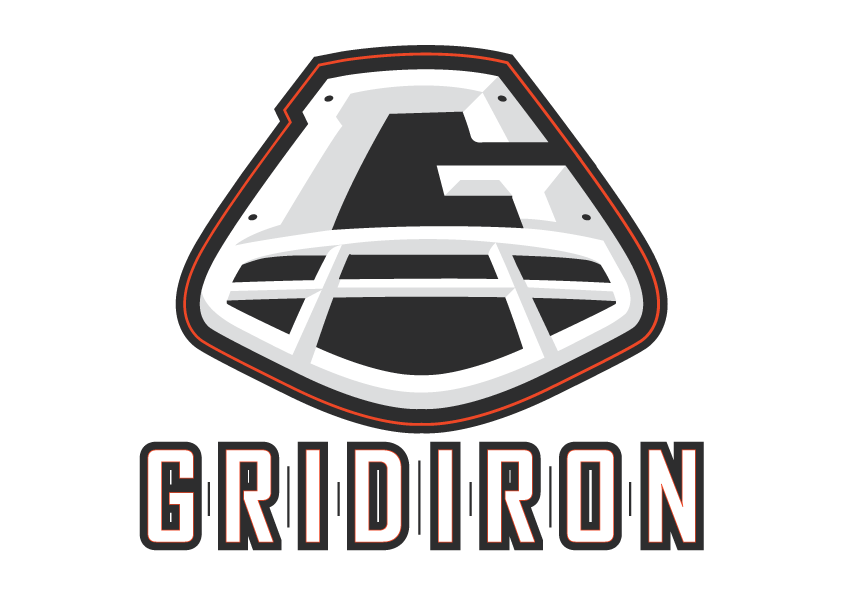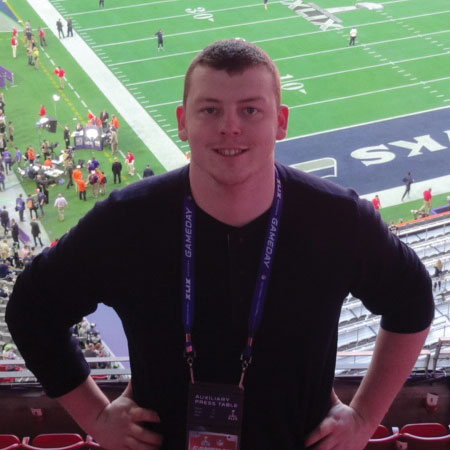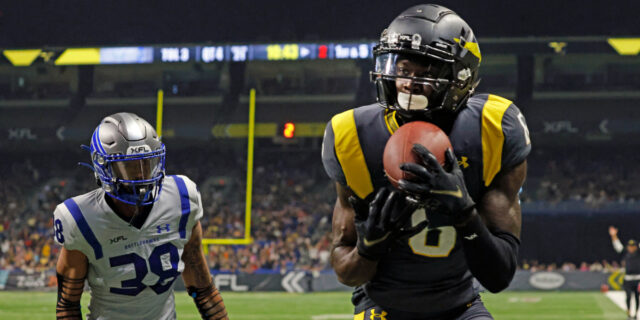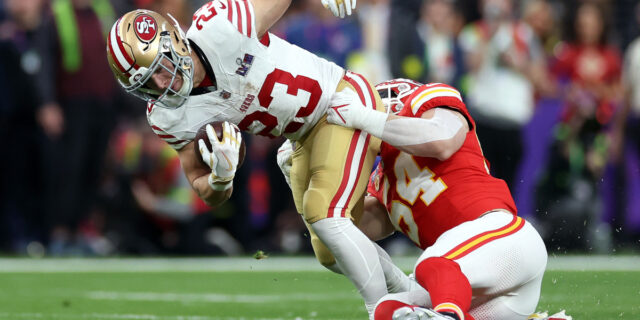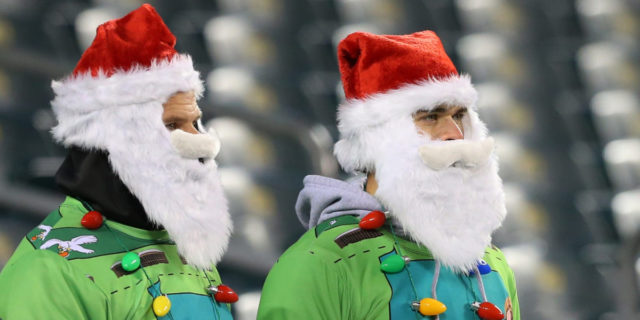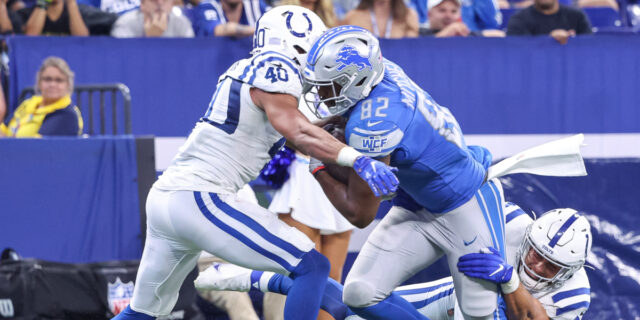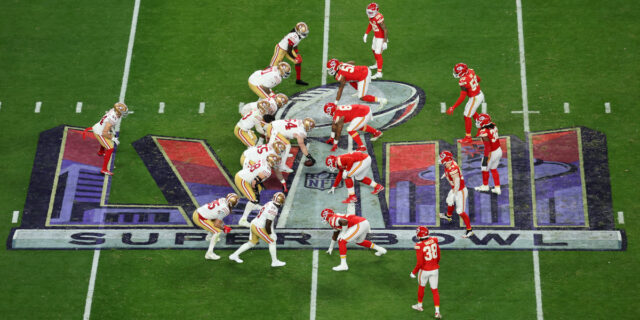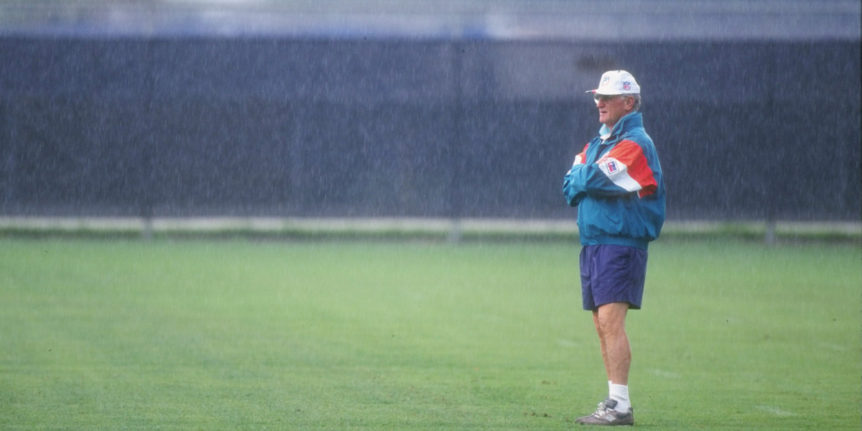
Mr 17-and-0
Perfection. It is the one word that coaches around the land preach. Over and over again. And yet it’s the one thing that eludes them all. The ultimate, and ultimately unattainable, goal.
However, there is one man – in the NFL at least – who can at least claim to have overseen ‘perfection’. Of course, and Don Shula will be the first to attest to this, there were some elements of the Miami Dolphins’ 1972 season that fell a little short of that 10-letter word. They did not go the whole year without conceding a point or a first down. But the final numbers were perfection in their own sense: played 17 games, and won 17 games, the last one coming in a 14-7 triumph over the Washington Redskins in Super Bowl VII.
It is this achievement that Shula will always be synonymous with. But to say he transcends that immortalising year would be an understatement. He still holds the record for the most wins by an NFL head coach – 328 – and suffered only two losing campaigns in a glittering 36-year career. No man, not even one as focused and gifted as this one, could not have expected to rack up such numbers, especially when he began his first head-coaching assignment – with the Baltimore Colts – at the age of just 33. And when the great man chatted to Gridiron, that question seemed as good a place as any to start. Just how did a bloke in his early thirties land a head-coaching gig?
Shula, a natural raconteur, settles in to one of his legendary anecdotes. “There was a guy that I played with at the Baltimore Colts called Gino Marchetti. The owner of the team – Carroll Rosenbloom – absolutely loved him. He was our captain and Rosenbloom just loved everything about him. So when Rosenbloom was going to make a coaching change, he said to Gino: ‘Who should I hire?’ and Marchetti replied: ‘There is only one guy, Shula’. Rosenbloom asked: ‘Do you mean the guy who used to play here?’ and he said: ‘Yeah, he’s a better coach than he was a player…’”
But while Shula could be assured of Marchetti’s respect, he would have to work hard for the rest of the Colts to follow suit. It was, after all, a strange position he found himself in. Having ended his six-year playing career – during which he was involved in the largest trade ever, involving 15 players – with the Washington Redskins in 1957, he had served as a college assistant coach and the Detroit Lions’ defensive coordinator between 1960-62. As such, when taking the reins at Baltimore, where he spent a large part of his playing days, Shula was just six years removed from appearing on the field. “When I started, I was coaching guys that I had played with and against that were much better players than I ever was. And now I am their head coach. I had to prove to them in every meeting, practice and game that I knew what I was talking about, and that I could help them play better and win.”
It did not take any modern, nauseating team-bonding sessions for Shula to garner that respect. His formula was simple: winning. And with a team led by outstanding quarterback Johnny Unitas, he did plenty of it. After overseeing an 8-6 record in his first season, he went on to accrue 71 wins to just 23 defeats over six years. “I just made sure I treated everybody the same and tried to make sure they knew that we were doing the right things. The only way that you can prove that is by the results. When we worked hard, played and won, they began to understand we were doing the right things. That is how you will be judged at the end of the year, the win-loss record. If that win record isn’t good at the start or at least isn’t improving, you’re not going to be around too long.”
For all his success, Shula did not have what he and owner Rosenbloom craved the most: a championship. To make matters worse, his team was on the wrong end of two huge reverses in season finales. After being beaten 27-0 by the Cleveland Browns as favourites in the 1964 NFL Championship Game, history was to repeat itself for the Colts five years later. Indeed, in Super Bowl III, Baltimore came up against a New York Jets side coached by his predecessor, Weeb Ewbank, that were 17-point underdogs. But, in Joe Namath, the unfancied Jets had a quarterback who was not about to back down, so much so that he guaranteed a victory the night before the game. Much to Shula’s and New York-born Colts owner Rosenbloom’s dismay, the Gang Green ran out 16-7 winners. Put into an historical context, it remains the Jets’ only championship and continues to be thought of as one of the biggest upsets in the history of American sports. Perhaps, though, it bears the greatest significance for a team not even involved: the Miami Dolphins. “It changed my relationship in Baltimore and with Rosenbloom,” remembers Shula. “He was from New York and all of his friends, or what he thought were his friends, let him know about it continually and he would pick up the phone and pass on to me what he felt. That is the thing that caused our relationship to come apart.”
Come apart it did. In 1972, Shula – despite all of his success – took on the new challenge of becoming the second head coach of the Miami Dolphins. Baltimore’s loss was to be Miami’s gain as the fledgling coach turned around his new franchise immediately. Some would shirk at the challenge of inheriting a 3-10-1 team, yet Shula quickly sparked a turnaround. In his first year, the new head coach oversaw a 10-4 regular season. Disappointment was to come in the post-season as the Dolphins fell to a 21-14 defeat against the Oakland Raiders in the first round of the playoffs. Despite progression the next year, Shula’s wait for a championship was to go on as the Dallas Cowboys destroyed Miami 24-3 in Super Bowl VI but, despite that setback, there was little doubt that Shula’s methods were working. “They were 3-10-1 the year before I got there,” he says. “They were not a real good football team so I just worked them hard and demanded a lot. They did not like it at first but, when they started to see the results, they bought into it. Hard work brings success; they started to win and believed in everything I was teaching them.”
The ultimate vindication for Shula was to come the following year. Led by a dominant defense – named the No-Name Defense, despite involving some outstanding talent, after Cowboys coach Tom Landry failed to remember any players before the previous year’s Super Bowl – and an outstanding running game, featuring Larry Csonka, Jim Kiick and Eugene ‘Mercury’ Morris, Miami were able to overcome the Week 5 loss of starting quarterback Bob Griese. His replacement, 38-year-old Earl Morrall, operated as the perfect game manager for a hungry, young team – linebacker Nick Buoniconti was the only other starter aged over 30 – that quite literally beat all-comers. Having enjoyed a perfect regular season, Morrall was on hand to lead Miami to a 20-14 win over Cleveland in the AFC Divisional Round before Griese came back to seal a triumph over Pittsburgh in the conference championship game. The latter was handed the reins in the ensuing Super Bowl as Shula put three miseries on the biggest stage behind him by sealing the greatest triumph of all.
“We are just very proud to be the only team [to have a perfect season],” he says now. “When you look back and your team has accomplished things that nobody else has, that is what you are proud of. You know, the baseball player Joe DiMaggio had a 56-game hitting streak and I am sure he never wanted that to be broken. And I still don’t think it has been.” So was Shula supporting the New York Giants in 2008, when they were able to stop the New England Patriots matching the feat achieved by Shula’s class of ’72 by winning Super Bowl XLII? “Oh yeah, of course,” he admits. “But it is something that, if it happens, I will call that coach and congratulate him. I am sure our players will do the same with their players but, if somebody does what we did, and it’s done within the rules and with class and style, I will certainly congratulate them.”
So often in the modern-day NFL, it seems when teams have conquered their Everest, they drop off the following year. Yet there was no such slide from Shula’s Dolphins, who retained their crown in 1973. “We just had a good bunch of guys that did a good bunch of things. And having achieved something nobody else had ever done, they became willing to work even harder,” he says. “They bought into the system and did the things I felt were necessary to be a winner.”
It seems incomprehensible now but 1973 was Shula’s last year of winning the ultimate prize, and that is despite him drafting one of the greatest quarterbacks of all-time in 1983, a certain Daniel Marino. And yet he still continued to thrive, enduring just two losing seasons in the ensuing 22 and enjoying a longevity unrivalled among his peers. And it is that which separates him from the pack. “You can have success for a short period of time but the competition is so great that it is so hard to maintain that success. The league is designed to help the weaker teams get stronger with the draft and waiver system so that is why it is so tough to maintain the record over so many years.”
So what was the secret? “The biggest thing I taught was attention to detail. I didn’t think there was anything that was too small to be ignored so I covered everything and tried to prepare teams for anything and everything. The other thing was conditioning. We wanted to be in better condition so I just worked teams hard. They didn’t like it but, after we won, they attributed a lot of it to us being in better shape and took pride in that. The secret is you have got to win early and often because, when it looks like it is starting to slide, the rumours start with people saying you cannot do it anymore. You have just got to, somehow, some way, continue winning.”
And there’s that word again. In the modern era, there is perhaps only New England’s Bill Belichick – ironically the man who came so very close to matching Shula’s perfection – who has managed similar. Yet throughout his tenure in New England thus far, barring one season, he has been aided by an outstanding quarterback in Tom Brady. Perhaps unsurprisingly, great play at the sport’s most important position is something Shula could boast too, from Unitas to Griese to Marino. But who was the best he coached? “When I look back and think about things like that, I think Johnny was the toughest guy mentally and physically. And then there is Bob, who was a field-general type of quarterback. And Marino was the best pure passer that I ever coached and has maybe ever played in the league; he just had that uncanny accuracy and great, fast delivery. So they all had their great strengths. It is just hard to pick one over the other.”
If only you could put the three together… Well, that just wouldn’t have been fair. If that was achievable, one imagines Shula might just have won more than the mere two championships – which of course is still two more than most achieve. Then again, he doesn’t do regrets: “I don’t think so. I ended up winning the most games and having the only perfect team.” No regrets in a career spanning nearly four decades – maybe perfection is possible after all.
This article originally appeared in Issue III of Gridiron magazine – for individual editions or subscriptions, click HERE
